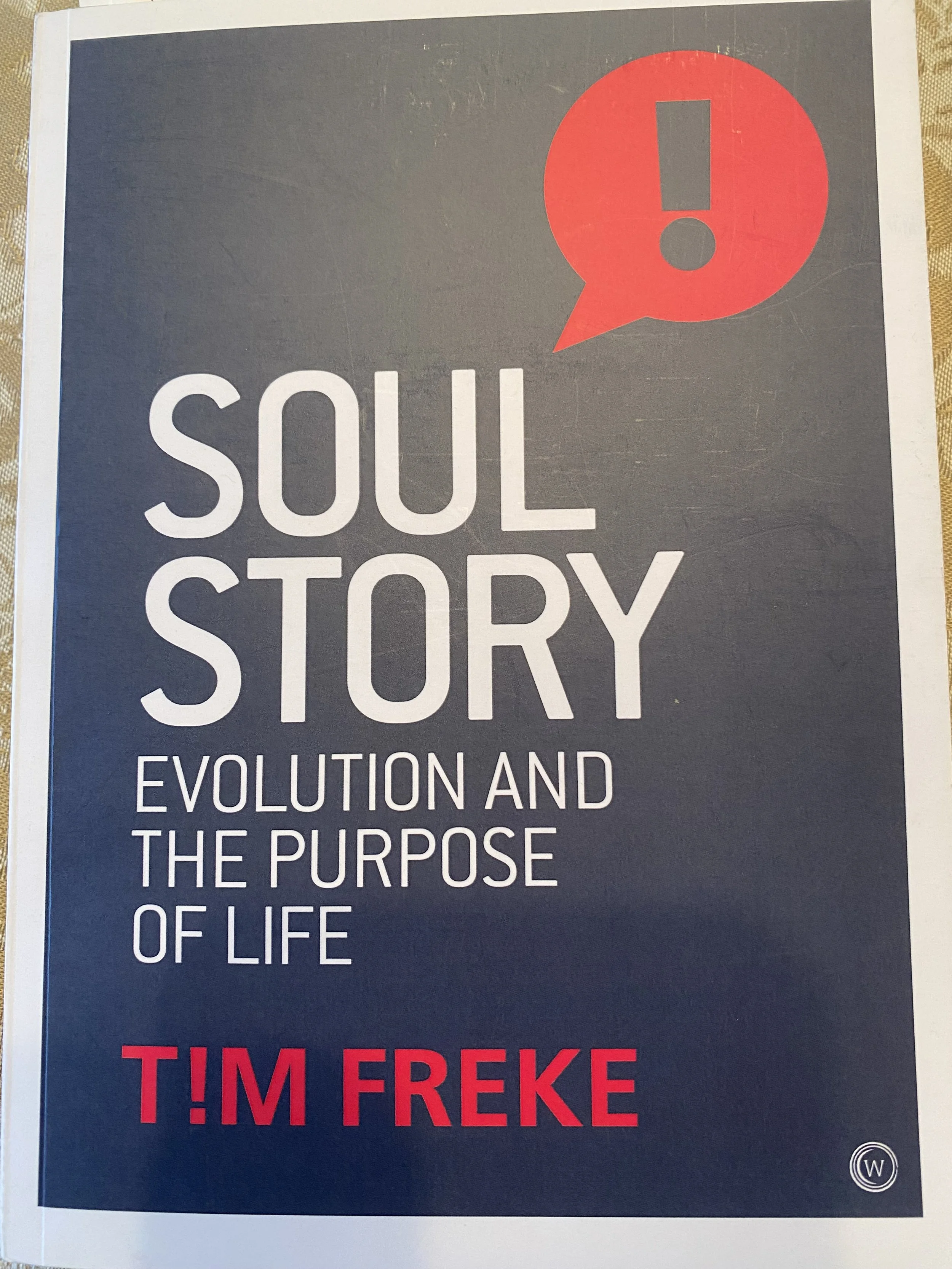Soul Story - Evolution and the purpose of life by Tim Freke
In promulgating his original and unorthodox philosophy, Tim Freke reminds us of Einstein’s idea that the human mind is incapable of understanding the universe. Even so, Freke puts forth some fascinating and credible thoughts on the nature of reality. In doing so, he addresses some of the pressing moral problems of our time and offers great hope.
His notion of emergent spirituality offers a way out of the “dangerous moral relativism” that ensued when we abandoned “the old certitudes of archaic religion.” But “attractively liberal and egalitarian as it sounds,” moral relativism is dangerous. Taken to the limit, it implies that “Hitler’s views on morality are as valid as Gandhi’s,” which “feels wrong.”
The problem of evil has dogged philosophy since at least the time of the ancient Greeks. The question is, if God is good and omnipotent, why does evil exist in the world? Freke explains that this apparent problem arises from traditional misconceptions. God too is evolving, and “is not a pre-existent, omnipotent deity who allows all the horrors of the world or creates them as punishments for our misbehaviour.”
This book points out the negativity and pessimism of objectivist science as well as traditional religions. Science claims life is meaningless and ends at death. Yet even Socrates suggested that death may be a state of remembering, not forgetting.
This idea is supported by the many reports of people who have experienced NDEs (near death experiences). During a life-review, these people have had the chance to evaluate the lives they’ve lived so far, and most come back from such experiences greatly changed.
Like objectivist science, the old religions preach dark views of earthly life, and humanity. For Buddhists, life is suffering. To be continually reincarnated to earth implies having failed to achieve nirvana. For many traditional Christians, life on earth is little more than a pale dress rehearsal of the heaven that follows death.
While “traditional theologies encourage us to abandon our own will and accept everything that happens to us as providence,” to passively acquiesce is to ignore “our responsibility to actively engage with the life process.” Older religions may advise their adherents to accept their fate, but Freke differentiates between fate and destiny. We are all individual souls with different destinies; in other words, life is guiding us to individual destinations which we “may or may not reach.” Fate is inevitable and our relationship to it is passive, but it is possible to fulfill — or fail to fulfill — our personal destinies. Destiny, he says, is our “curriculum in the school of life, giving us the opportunity to realize our “deep soul potentials” and heal our wounded souls.
Freke’s conceptions of life and death are far more optimistic and positive. Individually and collectively, he says, “we are evolving from ignorance to wisdom…from biological need to universal empathy…from egoism and tribalism to compassionate communion.” There is much work to be done on earth to help us get there.
We understand intuitively that “the soul is a more emergent level of our identity, which transcends and includes the less emergent body.” To explain his ideas, Freke uses many interesting analogies, even likening life on earth to a computer game. Though this game is “happening on both a narrative and a causal level at the same time, “we act on the level of the narrative, and the operating system takes care of how it works.”
It is true that much is wrong with the behaviour of humanity. At the same time, the emergent, evolutionary nature of life offers great hope. Everything is energy, and “our emotions, moods, hopes, fears and intentions have a psychic effect on everyone we connect with.” Thus, by “simply choosing to live with good intentions is already doing a lot to make the world a better place.”

